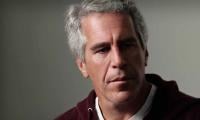India under pressure to deliver on ‘Modinomics’ in budget
NEW DELHI: Prime Minister Narendra Modi’s government unveils its first full budget on Saturday under intense pressure to bring about promised reforms to grow India’s economy after winning the biggest mandate in 30 years at the last year’s elections.Modi has promised to slash red tape, reform tax and overhaul land
By our correspondents
February 26, 2015
NEW DELHI: Prime Minister Narendra Modi’s government unveils its first full budget on Saturday under intense pressure to bring about promised reforms to grow India’s economy after winning the biggest mandate in 30 years at the last year’s elections.
Modi has promised to slash red tape, reform tax and overhaul land acquisition laws to try to attract foreign investment and create jobs for millions of young people.
But economists say investors were left underwhelmed by an interim budget introduced shortly after the prime minister took charge last year and are looking for concrete details this time, including on plans to boost India´s manufacturing and improve shoddy infrastructure.
With stocks soaring and sliding global oil prices improving public finances, economists said this year´s budget was critical to pushing reforms forward.
“This budget needs to leave a mark, just as the 1991 budget did when the economy was going through a major crisis,” D.K. Joshi said on historic reforms and moves to open up the economy to foreign investment.
“There is a huge amount of expectation. And this is the critical time to deliver,” Joshi, chief economist at local ratings agency CRISIL, told AFP.
Finance Minister Arun Jaitley is expected to increase spending on crumbling roads, railways and dilapidated power infrastructure as part of Modi´s plans to entice foreign businesses to set up shop in India.
Jaitley will likely hike capital expenditure to at least two percent of GDP, up from 1.8 in the last budget, economist Samiran Chakraborty predicted in a research note, meaning a rise to 2.8 trillion rupees ($45 billion).
The defeat suffered by Modi´s Bharatiya Janata Party (BJP) in last month´s state elections in Delhi only increased the pressure on the new government, with some critics saying voters were tired of waiting for change.
But economists warn Jaitley´s plans will be restricted by the need for further prudence, after committing to cutting the fiscal deficit to 4.1 percent of GDP for 2014/2015 from 4.5 percent the year before.
The right-wing government´s moves are aimed at persuading the central bank to continue to unwind high interest rates to boost business borrowing and accelerate growth.
After the Reserve Bank of India´s unscheduled rate cut last month, governor Raghuram Rajan said further reductions would be linked to “high-quality fiscal consolidation” and continued lower inflation.
“It´s not an easy thing, they (the government) must stick within the fiscal bounds while increasing expenditure,” Joshi said.
Jaitley´s task has been made slightly easier by boosted revenues from lower global crude prices, which has lowered the cost of fuel subsidies and allowed India, an oil importer, to hike excise duties.
Modi has promised to slash red tape, reform tax and overhaul land acquisition laws to try to attract foreign investment and create jobs for millions of young people.
But economists say investors were left underwhelmed by an interim budget introduced shortly after the prime minister took charge last year and are looking for concrete details this time, including on plans to boost India´s manufacturing and improve shoddy infrastructure.
With stocks soaring and sliding global oil prices improving public finances, economists said this year´s budget was critical to pushing reforms forward.
“This budget needs to leave a mark, just as the 1991 budget did when the economy was going through a major crisis,” D.K. Joshi said on historic reforms and moves to open up the economy to foreign investment.
“There is a huge amount of expectation. And this is the critical time to deliver,” Joshi, chief economist at local ratings agency CRISIL, told AFP.
Finance Minister Arun Jaitley is expected to increase spending on crumbling roads, railways and dilapidated power infrastructure as part of Modi´s plans to entice foreign businesses to set up shop in India.
Jaitley will likely hike capital expenditure to at least two percent of GDP, up from 1.8 in the last budget, economist Samiran Chakraborty predicted in a research note, meaning a rise to 2.8 trillion rupees ($45 billion).
The defeat suffered by Modi´s Bharatiya Janata Party (BJP) in last month´s state elections in Delhi only increased the pressure on the new government, with some critics saying voters were tired of waiting for change.
But economists warn Jaitley´s plans will be restricted by the need for further prudence, after committing to cutting the fiscal deficit to 4.1 percent of GDP for 2014/2015 from 4.5 percent the year before.
The right-wing government´s moves are aimed at persuading the central bank to continue to unwind high interest rates to boost business borrowing and accelerate growth.
After the Reserve Bank of India´s unscheduled rate cut last month, governor Raghuram Rajan said further reductions would be linked to “high-quality fiscal consolidation” and continued lower inflation.
“It´s not an easy thing, they (the government) must stick within the fiscal bounds while increasing expenditure,” Joshi said.
Jaitley´s task has been made slightly easier by boosted revenues from lower global crude prices, which has lowered the cost of fuel subsidies and allowed India, an oil importer, to hike excise duties.
-
 Charlize Theron Delivers Strong Message At 2026 Winter Olympics Opening Ceremony
Charlize Theron Delivers Strong Message At 2026 Winter Olympics Opening Ceremony -
 Lil Jon Reacts To Son Nathan Smith's Death: 'Devastated'
Lil Jon Reacts To Son Nathan Smith's Death: 'Devastated' -
 Bianca Censori Reveals Where She And Kanye West Stand On Having Children Together
Bianca Censori Reveals Where She And Kanye West Stand On Having Children Together -
 Taylor Swift Hypes Olympic Athletes In Surprise Video Message
Taylor Swift Hypes Olympic Athletes In Surprise Video Message -
 Timothy Busfield Charged With Four Counts Of Child Sexual Abuse
Timothy Busfield Charged With Four Counts Of Child Sexual Abuse -
 Kanye West First Contacted Bianca Censori While In Marriage To Kim Kardashian?
Kanye West First Contacted Bianca Censori While In Marriage To Kim Kardashian? -
 Travis Kelce Reveals What His Nieces Really Do When He, Taylor Swift Visit
Travis Kelce Reveals What His Nieces Really Do When He, Taylor Swift Visit -
 Lola Young Makes Career Announcement After Stepping Back From Touring
Lola Young Makes Career Announcement After Stepping Back From Touring -
 Priyanka Chopra Shares Heartfelt Message For Nick Jonas
Priyanka Chopra Shares Heartfelt Message For Nick Jonas -
 Spotify, Major Labels File $13b Lawsuit Over Alleged Music Scraping
Spotify, Major Labels File $13b Lawsuit Over Alleged Music Scraping -
 Travis Kelce Opens Up About Being Backup Plan For His Nieces
Travis Kelce Opens Up About Being Backup Plan For His Nieces -
 Winter Olympics 2026: Chinese Robot Dance Goes Viral In Milan
Winter Olympics 2026: Chinese Robot Dance Goes Viral In Milan -
 Jessica Biel Urged To Divorce Justin Timberlake?
Jessica Biel Urged To Divorce Justin Timberlake? -
 Rebecca Ferguson Gets Honest About Having First Kid With 22 Year Older Man
Rebecca Ferguson Gets Honest About Having First Kid With 22 Year Older Man -
 Epstein Ties: UK Police Search Properties In Probe Into Peter Mandelson
Epstein Ties: UK Police Search Properties In Probe Into Peter Mandelson -
 Andrew Mountbatten-Windsor’s Friendship With A Child Sex Offender Turns His Future Murkier
Andrew Mountbatten-Windsor’s Friendship With A Child Sex Offender Turns His Future Murkier



